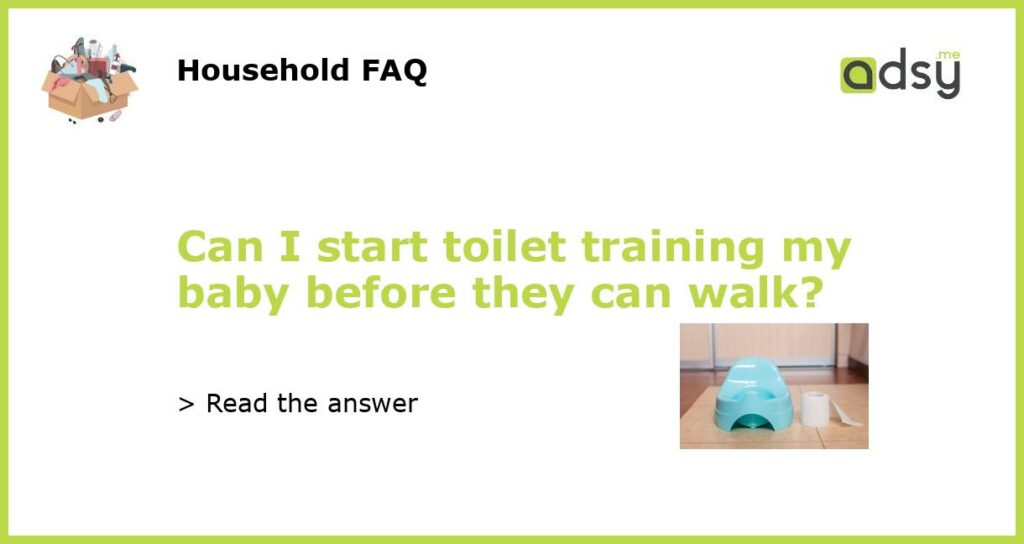When to Start Toilet Training
Toilet training is a significant milestone for both children and parents. Many parents wonder when the right time is to start this process. The popular belief is that children need to be able to walk before they can begin toilet training. However, contrary to this belief, it is possible to start toilet training before your baby can walk.
Signs of Readiness
The key to determining when to start toilet training is your baby’s readiness cues. While walking is not a prerequisite for toilet training, certain signs of readiness should be observed. These may include:
- Showing interest in the bathroom and what happens there
- Recognizing when they have a soiled diaper
- Being able to communicate their needs or discomfort
- Staying dry for longer periods
- Being curious about using the toilet or potty
The Importance of Communication
Communication is essential for successful toilet training, especially when starting early. Before your baby can speak, it’s important to establish a way for them to communicate their need to use the bathroom. This can be done through simple signs, cues, or gestures that you teach them to use when they need to go. By creating a form of communication, you can effectively start toilet training before your baby can speak or walk.
Potty Training Tools
When starting toilet training before your baby can walk, you may find it helpful to use certain tools. A potty chair or seat insert specifically designed for infants can provide a safe and comfortable place for them to sit. These tools can also make it easier for them to access the toilet independently when they are ready. Additionally, having a step stool to help them reach the toilet can be beneficial as they start to gain mobility.
Patient and Gentle Approach
Starting toilet training before your baby can walk requires a patient and gentle approach. It’s important to remember that every child is different, and progress may vary. Set realistic expectations and be prepared for accidents along the way. Celebrate small successes and avoid putting pressure or stress on your child. Remember that toilet training is a process that takes time, so be patient and provide plenty of praise and encouragement throughout the journey.






